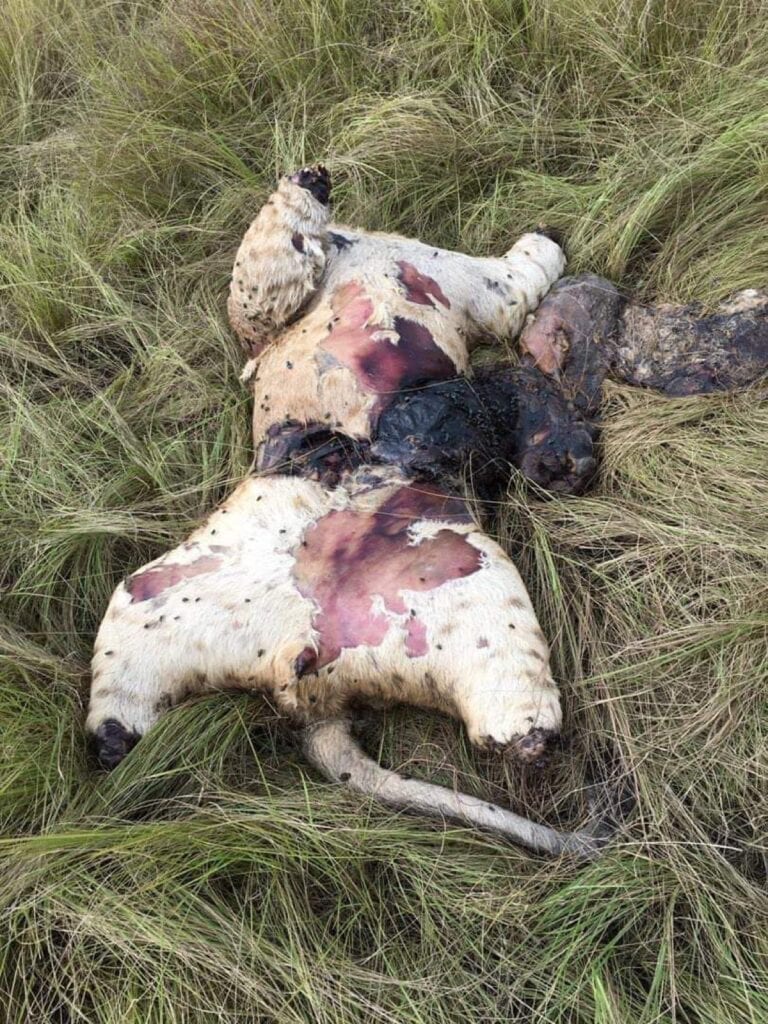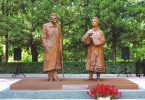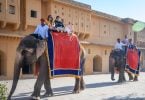In April 2018, a pride of eleven lions in the same national park was poisoned in a similar manner causing international outrage but this time the carcasses were mutilated with limbs and heads missing suggesting illegal wildlife trade in body parts for medicinal use.
Then the previous Minister of Tourism Wildlife and Antiquities Professor Ephraim Kamuntu led a fact-finding team to resolve issues surrounding Human-Wildlife Conflict.
The Association of Uganda Tour Operators (AUTO) was later in 2019 to follow up by sponsoring and leading a press team to engage with members of Nyakatonzi, Hamkungu, and Kasenyi communities bordering the park who have lost livestock and relatives to wildlife. Since the latest incident, a team of investigators is on the ground and is collaborating with police in Kanungu district in handling this matter confirmed UWA. Just two weeks ago, Big Cat biologist Alex Braczkowski had filmed the pride on assignment for National Geographic to assess on how the lions peculiar for tree climbing were progressing.

In 2019, Parliament of Uganda passed the Wildlife Act which was meant to strengthen community participation, compensate communities for the loss of their animals and property to wildlife and set tough penalties for wildlife crimes amongst other game-changing provisions.
See: https://eturbonews.com/257599/ugandas-president-assents-to-uganda-wildlife-bill-2017/
UWA has made efforts at strengthening wildlife protection since the year began by implementing the following measures: Setting up of a canine unit this February in Karuma Wildlife Reserve aimed at improving investigations in wildlife cases. In the past couple of days, UWA Executive Director Sam Mwandha received a donation of two land cruiser vehicles handed by the European Union UN Environment Program First Secretary and Head of Sustainable Development, Nadia Cannata for dispatch to Queen Elizabeth National Park under a three-year program being implemented by Uganda Conservation Fund (UCF) and UWA. In the past week, UWA has also benefitted from training under the Oil Development Program supported by the Norwegian government that sponsored training for UWA in the use of drones to monitor oil and gas activities in the parks.
In spite of these interventions, the lions, not forgetting the vultures have also fallen victim, yet such equipment as drones, patrols, and rapid reaction vehicles as well as the canine unit could well be extended to monitoring and protecting wildlife especially the lions of Ishasha in danger of extinction at this rate of slaughter. Condemning the heinous act, the UWA spokesperson reiterated that the killing does not only impact negatively on the tourism as a country but also revenue generation which supports conservation and community work in our protected areas.
Tourism has been a top foreign exchange earner to the country contributing almost 10% of GDP and 23% if the total foreign exports. Nature tourism has been contributing US$1.6 billion to the economy and also contributes to the well-being of communities surrounding the wildlife-protected areas. Tourism revenue plays a critical role in improving the livelihoods of communities around the national parks.
UWA gives back 20% of gate entry fees to the communities neighboring through the revenue sharing scheme. In the last five years, a total of UGX4,457,283,992= (US$1.23 million) was shared with communities neighboring Queen Elizabeth National Park to enhance their livelihoods.
The revenue sharing scheme is meant to strengthen partnerships between local communities, local governments, and management of wildlife areas leading to the sustainable management of wildlife resources in protected areas. Hangi assured the public that the Uganda Wildlife Authority shall continue to strengthen the protection of lions and other wildlife in Uganda and will pursue this matter to its logical conclusion. “Our national parks remain safe and attractive to visitors and we still have lions in Queen Elizabeth and other parks,” he ended. There are roughly 110 lions left in Queen Elizabeth National Park less the six fallen lions, a sad day for tourism in Uganda.






















